This is an excerpt from a book The History of Coosa County, Alabama written by Rev. George E. Brewer before 1922. Please consider the time period when it was written.
Jesse Suttle bought property from an Indian
Jesse Suttle bought a piece of land of an Indian, Pothleehole, in 1835, and settled on it. When he paid the purchase money the government required the money to be paid to the Indians in the presence of the government agent. So the money was paid the Indian.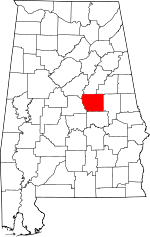
Suttle refused to return land
The Indian was drunk. On sobering, his money was gone. Being without money or land he demanded one or the other again, but Suttle refused as he had paid. It is said that it was not unusual for Indians to be made drunk when in the possession of money, and to be relieved of it by unscrupulous white men. They were wronged in other ways by many of the whites.
Oakachoy Creek Covered Bridge, Coosa County, Alabama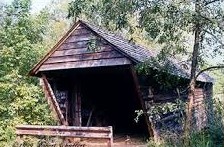
Treaty terms violated
There was also a good deal of talk of removing them to the Indian Territory in violation of the terms of the treaty. All this had stirred the Indians up, until there was strong apprehension of them rising up to massacre the whites. Some understanding was had among the whites as to what was to be done, and certain rendezvous had been agreed upon in case of hostilities. This Indian, incensed at his loss, felt like inflicting vengeance somewhere, and so Suttle was on the land that had been his, and did not know who had gotten his money, decided he would revenge himself on Suttle.
Suttle shot to death
Suttle had not yet built a house, but lived in the two Indian cabins on the place. On the 16th of May, Suttle was cleaning out a good spring near the cabins, and his wife was with him. While so engaged the Indian slipped near, and shot Suttle to death at the feet of his wife. She took her granddaughter, Matilda Howard, who lived with her, and ran to her son-in-law, George Johnson’s house.
He and neighbor, Howard Johnson, took their families and the widow with all haste to Nixburg, to Solomon Robbins’ house, the place agreed upon as a rendezvous for this section.
Solomon Robbins Tombstone
(from Findagrave.com by Lonewalker)
News spread rapidly
They scattered the news as they went. The news spread rapidly, and consternation seized upon the settlers, and the families of the whites were rapidly concentrated at Robbins’. His house was the shelter for the women and children, while fortifications were hurried by the men. M. L. Bulger’s wife, while on the way to refuge, was so injured by the horse running away, that she died from the injuries. For two days there was constant dread of attack.
Findagrave.com photo of tombstone
Suttle buried at Nixburg
For two days Suttle’s body lay where it had fallen, by then matters had quieted and a party went and brought the body to Nixburg, and it was buried in what is now the cemetery, the first grave opened in it.
Nixburg Cemetery
Suttle incident and others led to Indian removal
The killing of Suttle in Coosa, wth one or two other in the newly settled country, together with exciting, alarming , and exaggerated reports from different places, led to the removal by governmental authority of the bulk of the Indians to the Territory, in the summer of 1836.
Nixburg United Methodist Church Cemetery ( Jesse Suttles is buried here)
Photo from Find A Grave.com
Suttle was the father of two Judges
Very many of those people named were members of two strong churches of Shiloh and Fish Pond.
Jesse Suttle was the father of Judge Isaac Suttle of Coosa, of Judge John W. Suttle of Bibb, William Suttle, and Mrs. George Johnson, Mrs. William Howard, and Mrs. Stephen B. Ray.
SOURCE
- Excerpt from The History of Coosa County, Alabama by Rev. George E. Brewer (1832-1922)
Check out these books by Alabama Author Donna R. Causey



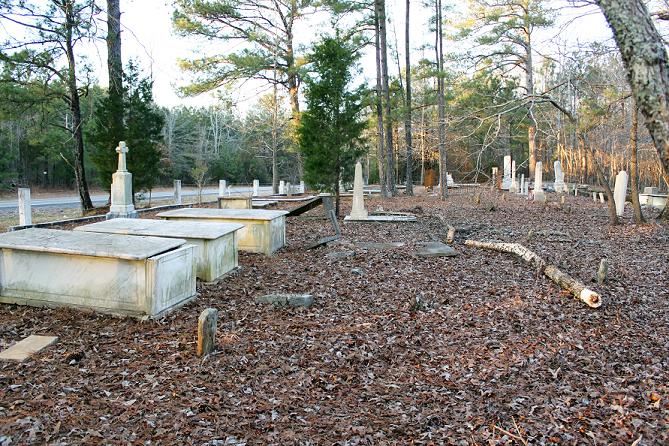
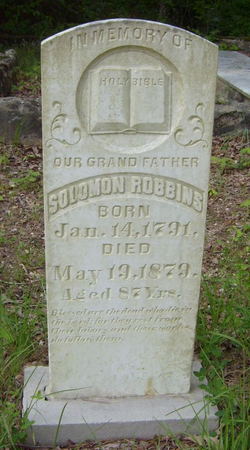

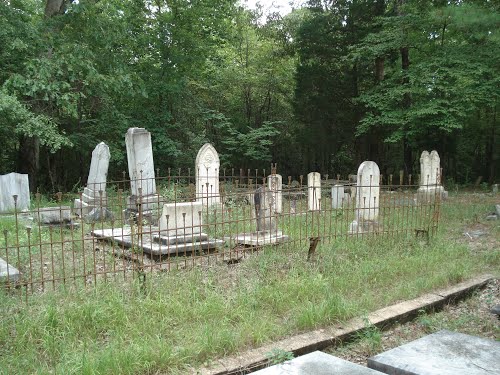
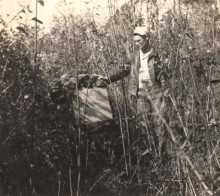
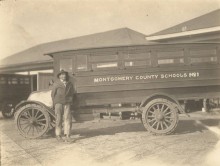

Jesse Suttle
Pamela Walker Green
Let us not forget that all “land transactions ” were not good “deals “. It says in the story that the Native man was drunk when said land sale took place. Not a good time to buy or sell….
The removal wasn’t because our native people’s gave trouble to the white man.
Nowhere did it say he was drunk at the time of purchase. Someone got him drunk later, and took his money. This article is only an excerpt.
Native Americans in almost all cases have been lied to and taken advantage of by Europeans. When a community believes that they share the land with every living creature but the other one believes they own it because a king in a faraway place wrote on a piece of paper and said it was theirs, how can a relationship develope? I have family on both sides of the issue. So life is not fair is the term used alot in such situations. As humans we still have a lot of work to do.
Linda Justice Simpson
Great story.
[…] shooting of Jesse Suttle at his spring in Coosa, and one or two others in different parts of the new territory about the, […]
Can someone please tell me what natives were around the Northwest Alabama in 1835 and up?And especially around 1890 to 1900?
Reply
– See more at: http://alabamapioneers.com/indian-removal-jesse-suttle-coosa/#comment-655497
The Cherokee and Creek primarily.
Thanks
Amanda asked what were the predominate tribes in northwest Alabama. The predominate was the Chickasaws, with a few scattered Cherokee settlements. Southwest, the Choctaw; northeast, the Cherokee; southeast the Creek. There were many smaller tribes throughout Alabama, but those were the predominate. In the state, the Creeks were the most predominate.
If anyone reading this lives near Nixburg, please see if you could put Confederate flags on the graves of the soldiers. I sent the military records of Thomas Robbins to the Sons of Confederate veterans many years ago hoping they would give him a marker, but it never happened.
Consider it done.
The story is not clear: was the Indian drunk at the transaction or did he use the money to get drunk, whereupon the whites relieved him of the rest of the money?
The story was transcribed exactly as written in the history book and I agree it is not completely clear but I believe the author is trying to infer that the Indian was drunk when he sold his land. There are probably many versions to the story and we’ll never know the truth because so much time has passed.
I believe that Jesse was my Third Great Grandfathers Brother, his name was George Suttle and at age 15 joined the Albemarle, Va. Militia as a Commissary of Supply.He along with others of his family after the Revolutionary War moved to near Rutherford Co., N.C. My third Great Grandfather along with others in his family were prominent in the area around Rutherfodrton, George building a large brick house known locally as the Suttle Brick house which burned in the 1960s and was them known as the Carpenter Brick house.I have traced the Suttle, (Settle), ( Setle) back to 1399 in and around Leads, Yorkshire, England.
That whole region of NC was settled by my ancestors Pre-Revolutionary War. They were Zimmermans until the British anglicized the name to Carpenter.
One of my grandfathers on the mother’s side of the family.
The fun part.
You see no person has a right to buy land from the Indians.
It’s called the Non-Intercourse Acts.
There was one again in 1834 as a matter of fact so an event like this one should probably not have occurred.
However the question is who owns the land now and are they ready to give it back to its rightful owners?
Jesse is an ancestor of mine! Thank you, for posting this!
to your knowledge, on a serious note, was he a slave owner also?
[…] Source: The Death of Jesse Suttle and other attacks sparked the removal of Indians in Alabama | Alabama Pion… […]
[…] Source: The Death of Jesse Suttle and other attacks sparked the removal of Indians in Alabama | Alabama Pion… […]
According to the accounts written in the Alabama Historical Quarterly by Rev. George Evan Brewer, page 90:
. . .So the money was paid to the Indian. As was common, he was soon drunk. On sobering, his money was gone, Being without money or land he demanded one or the other again, but of course Suttle, refused as he had paid. It is said that it was not unusual for Indians to be made drunk when in possessiobn of money, and to be relieved of it by unscrupulous whites. Rev. Brewer was a son in law of Judge Isaac Willis Suttle who was a son of Jesse Suttle and his wife Sarah Willis.
I am a African American female, with roots from Bibb county. My Great Great Grandparents resided in Boligee and Eutaw in the mid eighteen hundreds, I was able to trace my roots that far. however; with them carrying the Suttle (s) as their name sake, I along with other family members have not been able to trace any further. Some say we are from Africa, some say Indian. However my DNA says negative to any native american. (i) we would just like to find out who our for fathers were, we do know that their is caucassion blood that runs through our veins. We are just trying to find our heritage, can you help
Exactly where is this cemetery in Nixburg?
Headed north into “town”, it’ll be on the curve just before you get there on the right.
Beau Robbins, I was down there about 6 years ago looking around. Is it on Ala 9 and was grown up in the edge of the woods then? Several Powells buried there?
There is evidence of graves back towards the woods maybe 500 feet from road.
Yes
I have several old deeds for property in Coosa county that have the Indian’s, from whom the property was bought, name on them.
Would you mind posting them?
Deborah Diane Epperson They are in safety deposit box now, nut I will get them and post as soon as I can.
Very interesting!! Many of my ancestors are from Coosa and Tallapoosa counties. One of them lived for a while with the son, Judge Isaac Suttle’s family after the WBTS. My great grandfather helped build the covered bridge.
If I have all my facts right this Jesse Suttle is my 4th great Grandfather on my dad’s dad’s mom’s side. She was Mary L Suttle 1867-1933.
I’m a Brewer!!